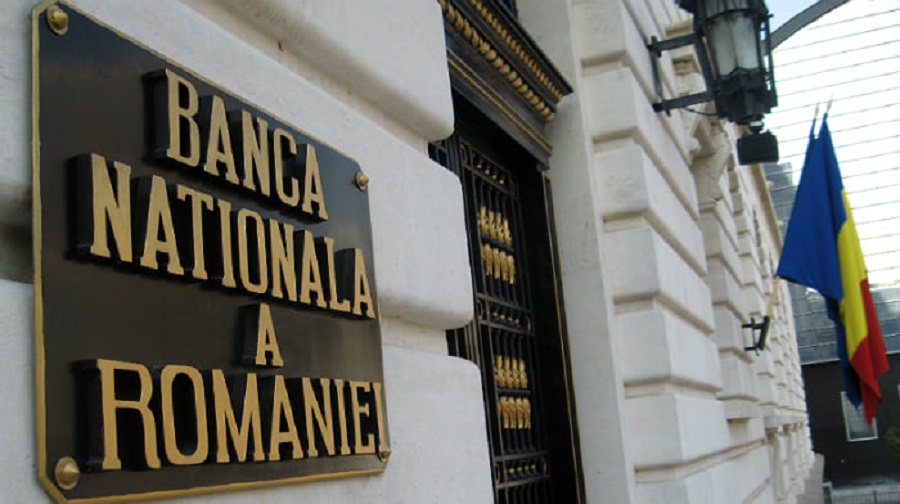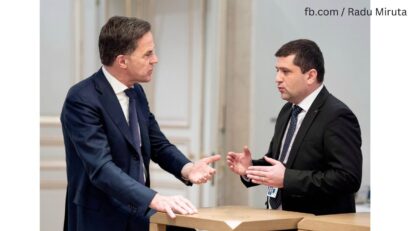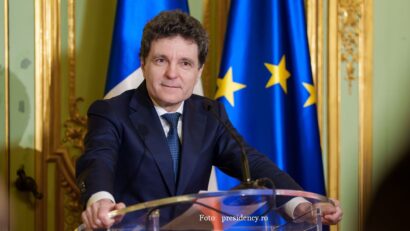The Leu, leveling out
The National Bank stepped in to stop the depreciation of the Leu, amidst political and economic uncertainty

Vlad Palcu and Ştefan Stoica, 21.05.2025, 14:00
The Governor of the National Bank of Romania, Mugur Isărescu, presented the quarterly inflation report on Tuesday. It was his first public appearance after the second round of the presidential election, on which occasion he confirmed that the Central Bank intervened earlier this month, after the first round, to stabilize the exchange rate, but also to ensure budget and pension payments. We recall that the first round, clearly won by the self-proclaimed sovereignist leader of AUR, George Simion, was followed by the resignation of the Social Democratic Prime Minister Marcel Ciolacu, which boosted political uncertainty, with a direct impact on the exchange rate and the stock market. There was strong pressure on the foreign exchange market, with some of the largest capital outflows, and the Central Bank stepped in with very large amounts to support the Leu. The Euro, which had traded for 4.97 Lei for a long time, exceeded 5.1 Lei. Mugur Isărescu says that an exchange rate below 5 lei for one Euro was impossible to support. He explained that a crisis cell was created with the Ministry of Finance and that solutions were identified so as to limit the depreciation of the exchange rate and to ensure liquidity in the market to make budget payments. Mugur Isărescu avoided talking about a new psychological threshold for the Euro-Leu exchange rate.
“I believe we have now reached an equilibrium. We are intervening, but we do not say when, why and to what extent. I think we are where we need to be, we will probably intervene”.
Regarding inflation, the National Bank estimates a rate of 4.6% for the end of 2025, higher than the previous forecast of 3.8%. However, inflation is not the biggest problem for the Romanian economy and finances, but the budget deficit, Mugur Isărescu says:
“When inflation drops below 5%, it is a problem, but not a fundamental one. The major concern is the public deficit. How do we correct it, how quickly do we correct it? How much credibility do we have? We will work with the new government and find the best solutions to gradually bring inflation down, based on a sustainable, gradual reduction of the public deficit, without having an economic recession”.
Romania ended 2024 with a budget deficit of 8.6% of GDP and committed, in talks with the European Commission, to reduce it to 7% this year. Mass absorption of EU funds could provide a considerable boost to investments and stimulate economic growth, without creating inflation, in a situation where avoiding a recession this year will be more difficult to achieve, the Central Bank governor believes. Mugur Isărescu argues that a very important step will be to restore market confidence. On the other hand, the Eurostat reconfirmed that Romania is still the country with the highest inflation in the European Union, with an average annual increase in prices of 4.9%. (VP)






























